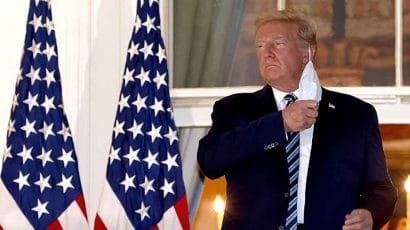Arms control is realistic; general disarmament probably isn’t
By Polina Sinovets, January 26, 2017
Dr. Pangloss, the famous Voltaire character, went through life believing that “In this best of all possible worlds, everything is for the best.” In a claim made by my roundtable colleague Joelien Pretorius—that the disarmament language of the Nuclear Non-Proliferation Treaty is unambiguous—I hear a bit of Pangloss.
The treaty’s disarmament language is anything but unambiguous. It requires signatories to pursue disarmament negotiations “in good faith”—but if good faith is absent, what does the language mean? Indeed, if all parties to the treaty had displayed good faith over the years, there would be no need today to pursue a nuclear weapon ban treaty. General nuclear disarmament would already have been negotiated.
Pretorius’s South Africa is to be admired for having eliminated its nuclear weapons. But some other nations, to borrow the language of Russian political scientist Sergey Karaganov, believe that nuclear weapons were “sent by God to save humankind.” The Russian Orthodox Church has bestowed blessings on the nation’s nuclear weapons. As far as the Russian state is concerned, calls for general nuclear disarmament are mere hypocrisy. General disarmament would only advantage nations whose conventional forces are superior.
Pretorius claims that nuclear deterrence doesn’t work—but it works from Russia’s point of view. If it doesn’t, why has NATO responded so cautiously to Russia’s nuclear brinkmanship over the last couple of years? For that matter, why does Moscow continue to carefully avoid crossing NATO’s red lines? To be sure, one might argue that a balance in conventional arms provides deterrence between the two sides. But history shows that the reliability of conventional deterrence is dubious—while no direct evidence indicates that nuclear deterrence doesn’t work.
Nuclear weapons have a fearful reputation—but conventional weaponry has caused the greatest casualties in the history of warfare. Soon after human beings created nuclear weapons, they came to understand that they stood at the brink of self-destruction, and since then they have managed to avoid using these weapons. One can even argue that nuclear weapons aren’t weapons of war at all, but rather weapons of dialogue. In fact, that may be why Russia imbues them with so much meaning.
I say all this only to point out that progress toward nuclear disarmament is possible only when the various parties acknowledge other parties’ thought processes and points of view. South Africa deserves praise for disarming, but other nations live under different conditions and espouse different worldviews. Certainly, Russia can be encouraged to disarm—but from Russia’s perspective, seeking a complete ban on nuclear weapons is a dishonest game aimed at undermining Russian sovereignty. A more realistic goal is to involve Russia in further nuclear reductions and arms control.
If a concept has proven useful in the past—as nuclear deterrence has done—one must proceed very carefully before discarding it. And arguing that deterrence is ineffective may, instead of disqualifying deterrence, disqualify one’s own arguments.
Topics: Nuclear Weapons
Share: [addthis tool="addthis_inline_share_toolbox"]














